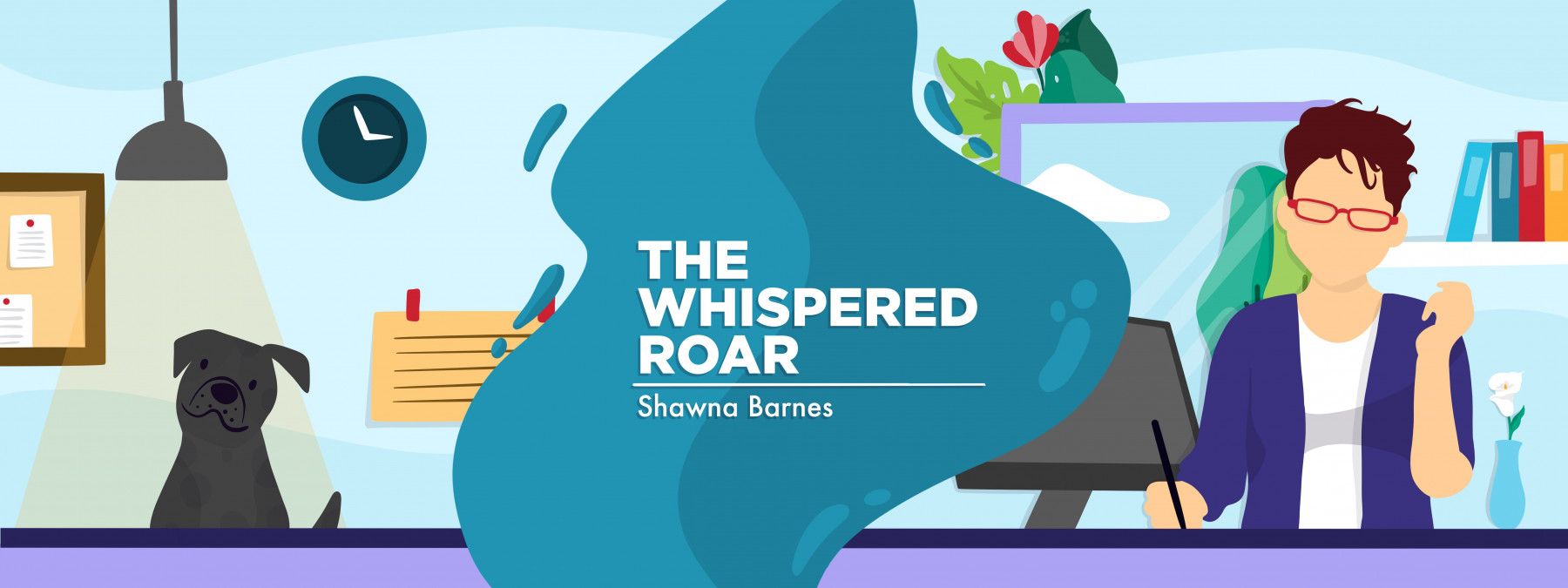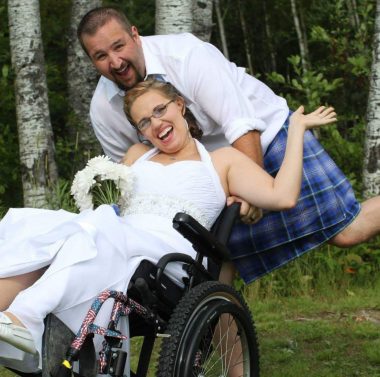Looking for a partner? I’ve found upfront honesty is the best policy
When dating, deciding whether to disclose your MG early on can be hard
Written by |

“Umm … are you OK? Why does it look like you’re having a stroke? It sounds like you’re drunk. What’s going on? Why are you choking on our dinner?”
When your date has to ask these questions, it’s past time to mention that you have myasthenia gravis (MG). I know, I know. The dating world can be scary, and it’s hard enough without adding in a rare neuromuscular autoimmune disease like MG.
I understand the desire to put your best foot forward. But how is that going for ya when it’s date night and you can’t put either foot forward?
Honesty over hidden truth
My husband, Justin, and I met through Match.com. When I was medically retired from the Army in July 2011, my son lived with his dad because I was too sick to take care of myself, let alone an active 9-year-old boy. I moved back in with my parents in Maine and decided to try my hand at the online dating thing. It seemed that was the only way I could meet people, because I was having seizures at the time and was unable to drive.
Justin and I talked for about a week online. He then drove four hours to meet me. And my mom. And a couple of my little sisters who were still living at home.
During our conversations, my health had come up to explain why my son wasn’t living with me. When Justin took the risk to come meet me, we took a long walk in the woods where we laid everything — and I mean everything — on the table. I told him about my complex medical issues. He told me about being depressed and having been laid off from his job.
Thankfully, I’d not yet started to experience the leg weakness that plagues me today, so we were able to walk and talk for most of the afternoon. At the end of the walk, I gave him an out: I told him that I understood it was a lot to take in, accept, and be willing to deal with. If it was too much, I said, it was OK because most days it was too much for me.
He asked me when my next appointment was and if my mom needed any help getting me there.
The foundation of our relationship
From the start, our relationship’s foundation has been open and honest communication. I didn’t have the time or the desire to beat around the bush. In my opinion, it was unfair to hide my complex health issues from someone who’d have to manage them with me.
Justin has told me many times since that first walk in the woods that my straightforward bluntness about my challenges is why he stuck around. He would’ve been angry and likely left had I hidden it from him, leaving him to find out during a crisis.
My myasthenia gravis symptoms reared their ugly heads in the spring of 2012. Our relationship was still young (less than six months) when I began experiencing bilateral leg weakness. It progressed to the point where I had to use a wheelchair. But Justin was at my side every step of the way, helping me roll with the punches.
We were married in August 2013.

Shawna in her wedding dress and wheelchair at her 2013 wedding, with Justin behind her wearing a kilt that she made. (Courtesy of Shawna Barnes)
Lies by omission
I’ve seen what I consider to be poor advice given to young, newly diagnosed myasthenics in various social media forums, with more seasoned women telling the 20-somethings to wait before sharing that they have the disease. Instead, these women advise making a later disclosure so no one will be scared off. While not lying, such an omission of truth is still deceptive. If the roles were reversed, how would you feel if you were deceived about something as serious as myasthenia gravis?
In these same forums, I’ve also seen the older MG warriors lament about the lack of support they receive from a spouse or significant other. I think the two issues are related. If you haven’t been completely honest with a partner and lack support at home, I’m left to make a connection about what the real cause is for the current problem.
It’s been my experience that you don’t want to wait and see if a prospective partner can handle the complex medical needs of someone with MG, especially if you have a crisis. I think you should give them the knowledge from the start. Provide them with the tools they need so they can not only support you, but also find ways to get the support they’ll likely need as your caregiver.
What are your thoughts on this topic? Please share in the comments below.
Note: Myasthenia Gravis News is strictly a news and information website about the disease. It does not provide medical advice, diagnosis, or treatment. This content is not intended to be a substitute for professional medical advice, diagnosis, or treatment. Always seek the advice of your physician or other qualified health provider with any questions you may have regarding a medical condition. Never disregard professional medical advice or delay in seeking it because of something you have read on this website. The opinions expressed in this column are not those of Myasthenia Gravis News or its parent company, Bionews, and are intended to spark discussion about issues pertaining to myasthenia gravis.



Jodi Enders
Love love this and your approach to relationships with MG!
Shawna Barnes
Thank you Jodi! - Shawna